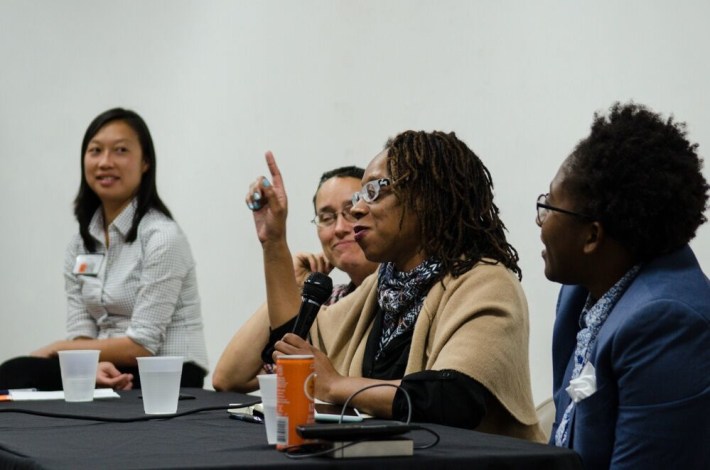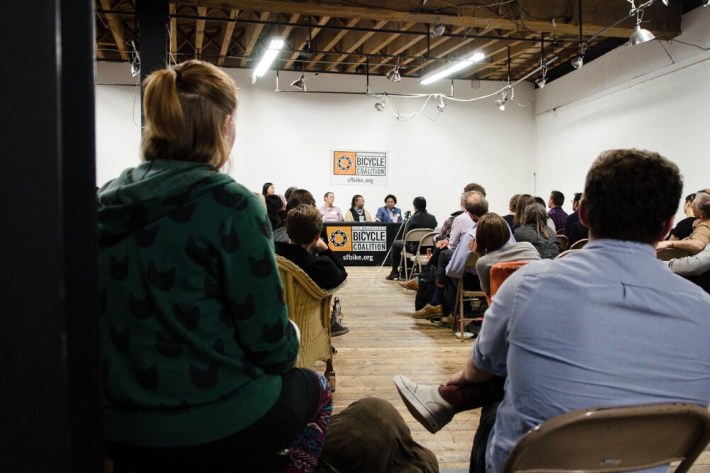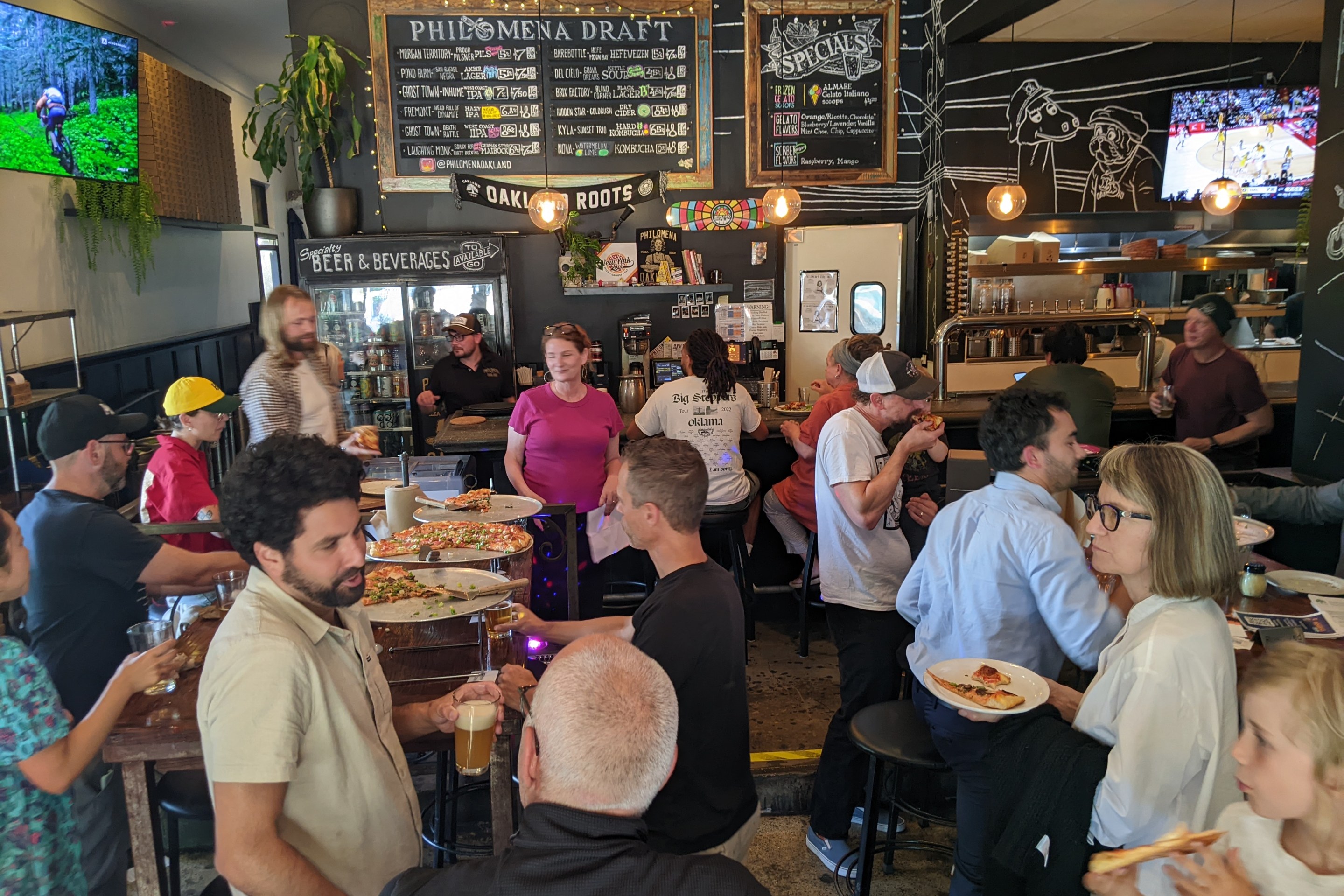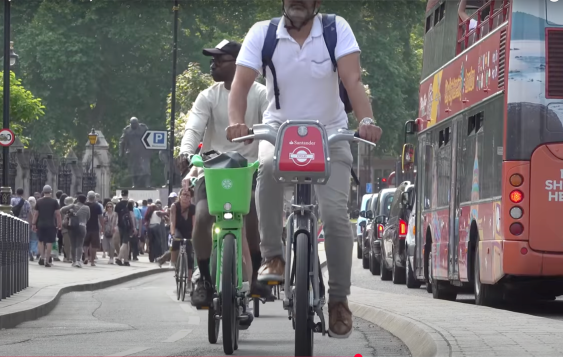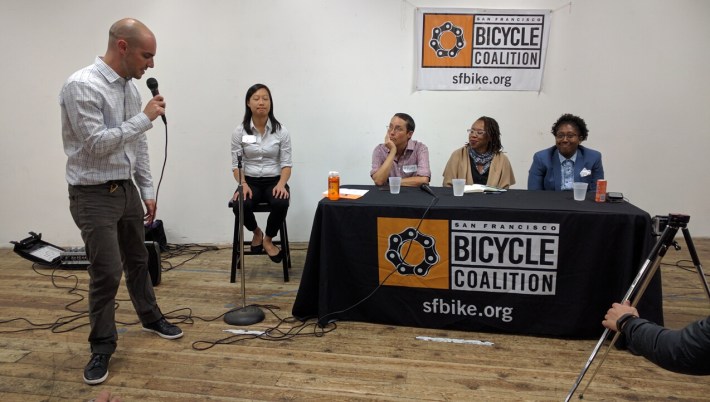
Yesterday evening, the San Francisco Bicycle Coalition (SFBC) held a discussion about diversity as part of its "Bike Talks" series at the Sports Basement Grotto on Bryant Street. Janice Li, Advocacy Director for SFBC, moderated a panel comprised of Lateefah Simon, President of the Akonadi Foundation, Tamika Butler, Executive Director of the Los Angeles County Bicycle Coalition, and Renee Rivera, Executive Director of Bike East Bay.
The formal discussion about the lack of diversity in the bike advocacy community was preceded by a social with snacks and drinks. "I’ve been very up-front that issues of racial and economic justice are important to me personally, and I am interested in how the SFBC’s work can reflect those values," said Brian Wiedenmeier, in a conversation with Streetsblog. Wiedenmeier, in several presentations, has stressed his wish that the SFBC broaden efforts to increase the diversity of its membership. "We have a strategic planning process we’ll be kicking off this fall and I think this event is a great way to begin that conversation with our members," he said.
Mars Re, an advocate who resides in the Tenderloin and works for Education Outside, which promotes science education in under-served schools, also came to the event. "My entire career has been in poverty, the disadvantaged, social justice activism," she said. "I want to represent people who don’t have a voice who depend on biking and transit."
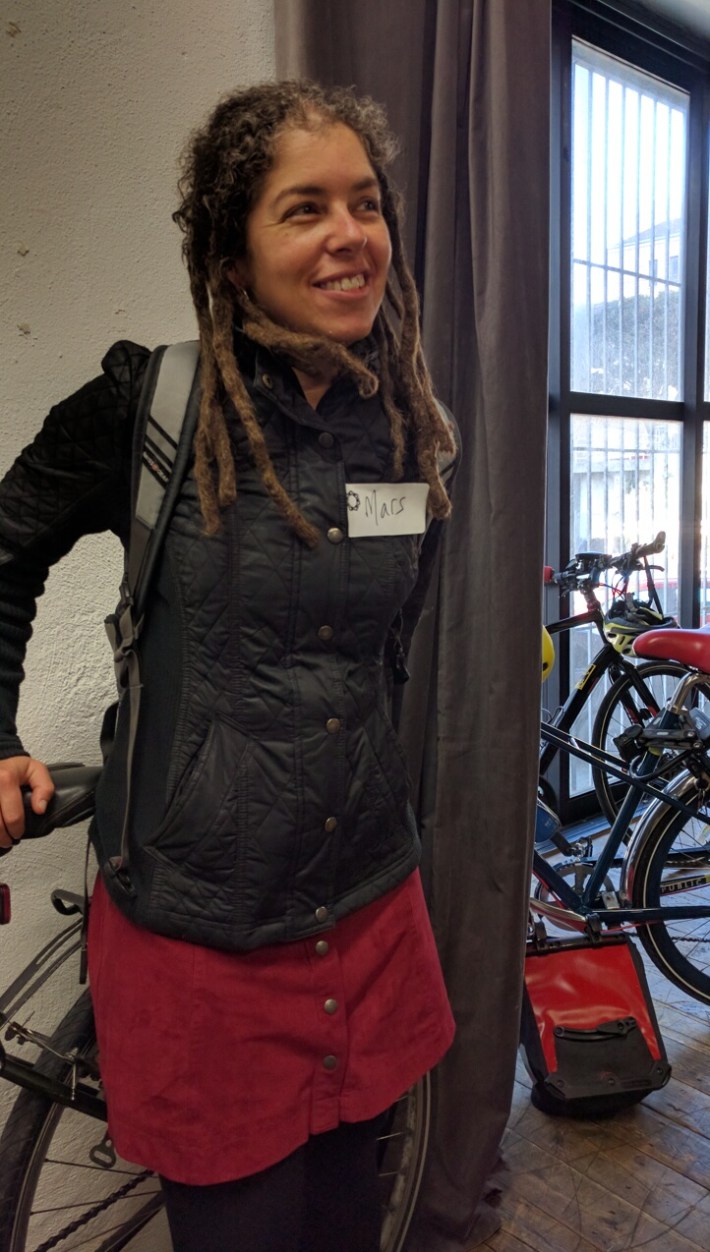
"Demographics are shifting very quickly; if the diversity of Oakland is one of the defining aspects of the city, we need to put some value on that and our public policies and priorities need to reflect that," said Robert Prinz, Education Director for Bike East Bay, who also came to listen about how diversity translates in the bike advocacy realm. "That’s something that hasn’t been figured out yet. That’s why discussions like this are important. Because we don’t have the answers."
After about an hour, the formal panel discussion began. Butler talked about coming from her native Nebraska to the Bay Area to go to law school. She worked for social justice organizations and then landed the job of heading up the Los Angeles Bicycle Coalition. She said bike advocacy, for her, is part of a larger mission for social justice. "I wouldn’t describe myself as a bicycle advocate, although I am a person who rides a bike; it’s not my most important identity," she stressed. "If you told me I could never ride a bike again, I’d be sad, but before I am a person who rides a bike, I am all these other things...I see my work as using a bicycle as a tool for social justice."
"Many of the folks planning walkable cities often have choices to get in cars or a form of transportation where they control it," said Simon, President of the Akonadi Foundation, which has the mission of eliminating the structural racism at the heart of inequity. "I had to make sure folks with criminal records...especially young people who can’t drive [can get around]...we gave them bikes to get to and from appointments."
Simon and Butler highlighted the stark difference between the majority of bike advocates--who want safe bike lanes because they prefer to ride bikes--and the socio-economic strata that social justice advocates normally represent. As Simon explained, the people she works with ride bikes out of an absolute necessity to get to jobs where transit doesn't run or who work hours when transit is barely available. "You’re trapped where you don’t have mobility and options."
So how does that translate into more broadly-based advocacy? All the panelists seemed to agree that the first step is getting people on staff from minority communities. Butler stressed that doesn't mean hiring one person of color to do outreach; it means diversifying everyone in all departments--from the executives to the bookkeeper and the janitor. In other words, to do advocacy in communities of color, members of those communities have to be an integral and ubiquitous part of an organization.
"We’ve been learning a lot from the health promoter model, hiring people from the community, to go into the community, speaking from within to give people tools to learn to ask questions," said Renee Rivera, Executive Director of Bike East Bay and another of the panelists. "We can’t just go to community meetings."
Simply going to community meetings as outsiders, explained Butler, leads to blow back. Cycling advocates, she said, will often show up and sell a community on these "great" bike lanes that they want to see installed. But that usually comes concurrently with white people moving into the neighborhood--only once they can't afford to live anywhere else. That resentment, one could argue, was acutely felt at a recent public meeting over transit lanes in the Mission. Asking for bike or transit lanes can become a symbol of inequity explained Butler. "We have no green space, we have nothing but liquor stores...now you want bike lanes?"
Besides, people of color, the panelists expressed, already know what it's like to be discriminated against, hated and threatened; getting run off the road by an angry motorist is just one of a dozen ways. "This is a movement where there are so many people who never felt oppressed until they were on two wheels," said Butler.
